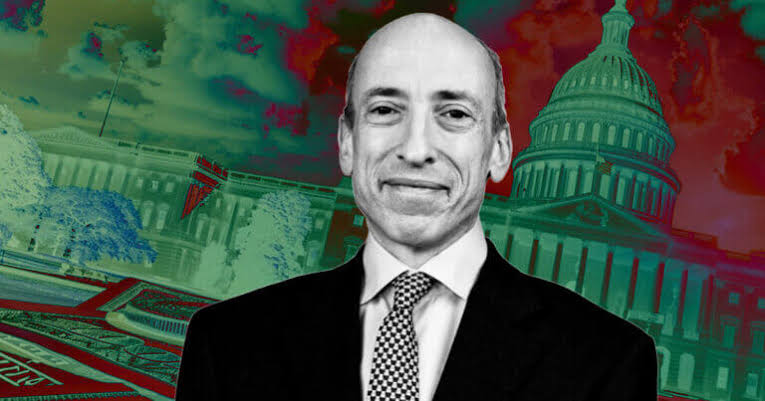Gary Gensler, SEC Chair has strongly opposed the Financial Innovation and Technology for the 21st Century Act (FIT21 Act).
Gary Gensler, SEC Chair has expressed his strong opposition to the Financial Innovation and Technology for the 21st Century Act, also known as the FIT21 Act, in a recent statement.
On Wednesday, important sources shared a statement from SEC Chair, expressing his concerns that the act will create significant regulatory gaps and contradict longstanding standards surrounding the oversight of investment contracts.
SEC Chair Strong Opposition & Risks Highlighted
Gensler’s statement was publicized. SEC chair argued that this could potentially pose a significant risk to both investors and the financial markets.
Gensler stated in his statement that the FIT21 Act would “create new regulatory gaps and undermine decades of precedent regarding the oversight of investment contracts.” This would expose investors and the capital markets to an unimaginable level of risk.
In a post that he made on X, Alexander Grieve disclosed important information about the points that he was trying to make. One of the most prominent points of contention that he raises in opposition to the FIT21 Act is the designation of crypto assets as investment contracts.
Furthermore, he believes that the H.R. 4763 measure would exempt these assets from SEC supervision, thereby complicating investor protection. Gensler emphasized that the act might make it possible for cryptocurrency companies to self-certify their assets and products as “decentralized” and place them in a distinct category of “digital commodities.
“This self-certification process would greatly hinder the Securities and Exchange Commission’s (SEC) capacity to contest these classifications due to the limited resources available.
“The self-certification process poses a risk to investor protection not only in the cryptocurrency space; it has the potential to undermine the larger capital markets that are worth $100 trillion.
“This is because it offers a way for individuals to circumvent robust disclosures, prohibitions that prevent the loss and theft of customer funds, enforcement by the SEC, and private rights of action for investors in federal courts,” Gensler emphasized.
Concerns Over Market Regulation and Potential Fraud
In addition to this, Gensler expressed his fears that the FIT21 Act might make it possible for malicious actors to take advantage of the regulatory loopholes that the bill would establish.
He issued a warning that those who engage in fraudulent schemes, such as pump-and-dump and penny stock schemes, may self-certify their systems as decentralized or designate their operations as crypto investment contracts in order to circumvent securities regulations.
“What if those who engage in pump-and-dump schemes and push penny stocks argue that they are not in violation of the securities laws by identifying themselves as crypto investment contracts or by self-certifying that they are decentralized systems?” Gensler raised a query.
Additionally, he expressed his disapproval of the bill because it excludes cryptocurrency trading platforms from the definition of an exchange and does not incorporate previously validated frameworks like the Howey test.
He believes that this would put investors in a more precarious position.
